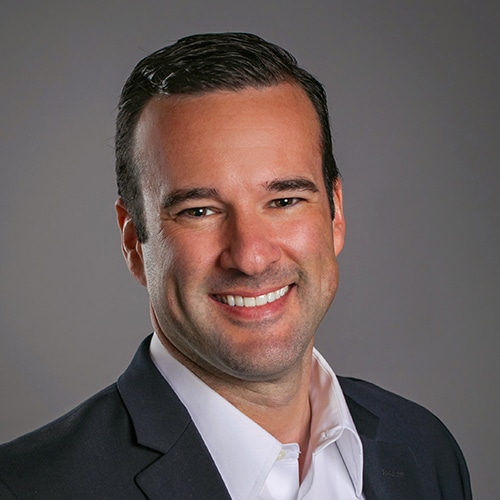Is it ethical for a lawyer to represent a client who has used legal crowdfunding to solicit donations to fund the lawyer’s fee?

Table of contents
QUESTION:
During a recent client onboarding of a divorce case, we discovered that she used legal crowdfunding for most, if not all, of our initial retainer fee. This was a first for us, and we were shocked. She said she received many donations from family and friends, as well as total strangers from around the country.
While we weren’t involved and didn’t advocate for this method of financing, we wanted to make sure we weren’t violating any ethical obligations by knowing that crowdfunding is paying for representation.
Is it ethical for a lawyer to represent a client who has used crowdfunding to solicit and accept donations to fund the lawyer’s fee?
ANSWER:
The consensus of ethics opinions concludes that lawyers are generally allowed to represent clients who use crowdfunding to pay for representation. However, there are several ethical considerations to examine.
“Crowdfunding” is defined generally as funding a project or cause by raising small amounts of money from a large number of people. This can be easily done via online platforms designed to share stories and process payments. While there are different models of crowdfunding, from straight donations to equity investing with expectations of returns, I’m assuming the funding here is strictly on a donation basis.
Also, it’s worth differentiating between crowdfunding and third-party litigation finance, aka alternative litigation finance (ALF). ALF refers to the funding of litigation activities by entities other than the parties themselves, with a contractual relationship often including an assignment of interest in the proceeds from the cause of action. These forms of legal services funding create ethics concerns including conflicts of interest, attorney-client privilege, and the importance of independent professional judgment.
The Word Is Out
As you find your client at your doorstep with previously solicited donations in hand, you need to know what information she has publicized, in what manner she has published and shared it, and to what audience (assume to the public at large). Are there case details that should have remained confidential, or at least private? What damage control needs to be discussed or action taken from the onset of representation?
Just as social media can arm opposing counsel with information about your case, a crowdfunding website making a plea for financial assistance can be a treasure trove of case details littered with personal information and emotional vulnerabilities. Consult with your client on not disclosing case information to third parties, including the risk of waiver of attorney-client privilege (see ABA Model Rule 1.6(c)).
If a lawyer is involved in soliciting crowdfunding, the “ask” may not use fraudulent, false or misleading statements. The District of Columbia Bar’s Ethics Opinion 375 (“Ethical Considerations of Crowdfunding” (November 2018)) stresses that a “lawyer who conducts the crowdfunding on behalf of a client must ensure that the communications used to solicit the funds are truthful,” in accordance with ABA Model Rules 4.1 (truthfulness in statements to others) and 7.1 (communications concerning a lawyer’s services).
Not an Open Wallet
Lawyers cannot charge an unreasonable amount (ABA Model Rule 1.5(a)) and special steps must be taken if the lawyer’s compensation is from someone other than the client (ABA Model Rule 1.8(f)).
Crowdfunding donations to fund legal representation could create a perception that the lawyer is bound to gain a windfall of legal fees collected above and beyond what may have transpired otherwise. This issue is mentioned in the D.C. Bar’s Ethics Opinion 375:
“Crowdfunding increases the risk that a lawyer could be perceived as seeking an unreasonable fee under Rule 1.5(a). This is in part because of the ease by which the amount of money in excess of what is required to fund the representation may be raised and in part because some clients may exercise less scrutiny over the lawyer’s bills since the client is not personally, or at least not solely, responsible for payment.”
Similar concern is raised by examples in the Philadelphia Bar Association’s Professional Guidance Committee Opinion 2015-6 (December 2015):
“The Committee believes that the lawyer must consider these various issues and resolve them with the client, and that without consideration and resolution of such matters, the Agreement is insufficiently clear and could possibly result in an excessive fee. For example, suppose the inquirer raises $20,000 under this arrangement and that the entire fund immediately is paid to him or her, and, then, the lawyer manages to get a result in the case by devoting only ten hours of work. That situation could produce a fee at the rate of $2,000 per hour. On the other end of the spectrum, suppose the funding site raises $20,000, and then the inquirer finds out the matter will go on for years and require thousands of hours of work, much more than anticipated, and more than the inquirer can possibly handle without a fee. Could he then keep the whole fee and withdraw? Those are only two examples of what could be many possible scenarios. If the lawyer is to avoid taking an excessive fee and satisfy the requirement of [ABA Model Rule 1.5(a)], the inquirer must consider these issues. The inquirer and the client should consider these possibilities and describe their understanding about the fee and scope of representation carefully. In addition, the inquirer should consider the various factors spelled out above in determining whether the fee is reasonable under all the circumstances of the representation.”
Additionally, issues of money tracing can quickly create a vague application of Rule 1.8. In other words, are the funds coming directly from the client after being transferred to her (without conditions?) from the crowdfunding source? Or is the crowdfunding source transferring funds directly to the lawyer? Or maybe the crowdfunding source is holding the funds in trust until earned? (Insert IOLTA account issues can o’ worms, but I digress.)
The best approach in such a situation may be to meet the provisions of Rule 1.8(f) by ensuring consent, independent judgment, and confidential information are met and maintained.
Rule 1.8(f) states that a lawyer shall not accept compensation for representing a client from one other than the client unless:
(1) the client gives informed consent;
(2) there is no interference with the lawyer’s independence of professional judgment or with the client-lawyer relationship; and
(3) information relating to representation of a client is protected as required by Rule 1.6.
With respect to Rule 1.8(f)(1), “informed consent” is a defined term under Rule 1.0(e) and “denotes the agreement by a person to a proposed course of conduct after the lawyer has communicated adequate information and explanation about the material risks of and reasonably available alternatives to the proposed course of conduct.”
The D.C. Bar opinion continues:
“Under [Rule 1.8(f)(2)], the lawyer must ensure there is no interference with the lawyer’s independence of professional judgment or with the client-lawyer relationship. Rule 5.4(c) also prohibits a lawyer from allowing a person who pays the lawyer to provide legal services to a third party from ‘direct[ing] or regulat[ing] the lawyer’s professional judgment in rendering such legal services.’ In the context of crowdfunding, a lawyer may not allow donors, whether family members or strangers, to exert undue influence with respect to the objectives of the representation or the legal strategies employed. This duty remains unchanged notwithstanding the social media and other connections that often accompany crowdfunding.”
To help alleviate such concerns, it would be advisable for the crowdfunding client to inform contributors that their donated funds are nonrefundable, that they will not receive confidential information about the client’s matter, and that they may not interfere with or otherwise exert control over the lawyer’s work if it’s not too late.
To summarize, here are a few ABA Model Rules that may come into play:
- Rule 1.1 requires competent representation of clients, including keeping abreast of changes in the law and its practice, including the benefits and risks associated with relevant technology.
- Rule 1.5(a) prohibits unreasonable fees or expenses.
- Rule 1.6(c) requires reasonable efforts to prevent the inadvertent or unauthorized disclosure of, or unauthorized access to, information relating to the representation of a client.
- Rule 1.8(f) prohibits accepting compensation from another without conditions.
- Rule 4.1 prohibits making false statements of material fact or law.
- Rule 5.4(c) prohibits a third party from directing or regulating the lawyer’s professional judgment.
- Rule 7.1 prohibits false or misleading communication about the lawyer or the lawyer’s services.
Related Opinions:
ABA Formal Opinion 484: A Lawyer’s Obligations When Clients Use Companies or Brokers to Finance the Lawyer’s Fee (November 2018)
NY City Bar Formal Opinion 2011-2: Third-Party Litigation Financing (June 2011)
About the Illinois Supreme Court Commission on Professionalism
The Commission on Professionalism was established by the Illinois Supreme Court in September 2005 to foster increased civility, professionalism and inclusiveness among lawyers and judges in the state of Illinois. By advancing the highest standards of conduct among lawyers, we work to better serve clients and society alike. These duties we uphold are defined under Supreme Court Rule 799(c). For more information, visit 2Civility.org, the Illinois Supreme Court Commission on Professionalism’s website.
Illustration ©iStockPhoto.com
Subscribe to Attorney at Work
Get really good ideas every day: Subscribe to the Daily Dispatch and Weekly Wrap (it’s free). Follow us on Twitter @attnyatwork.
















